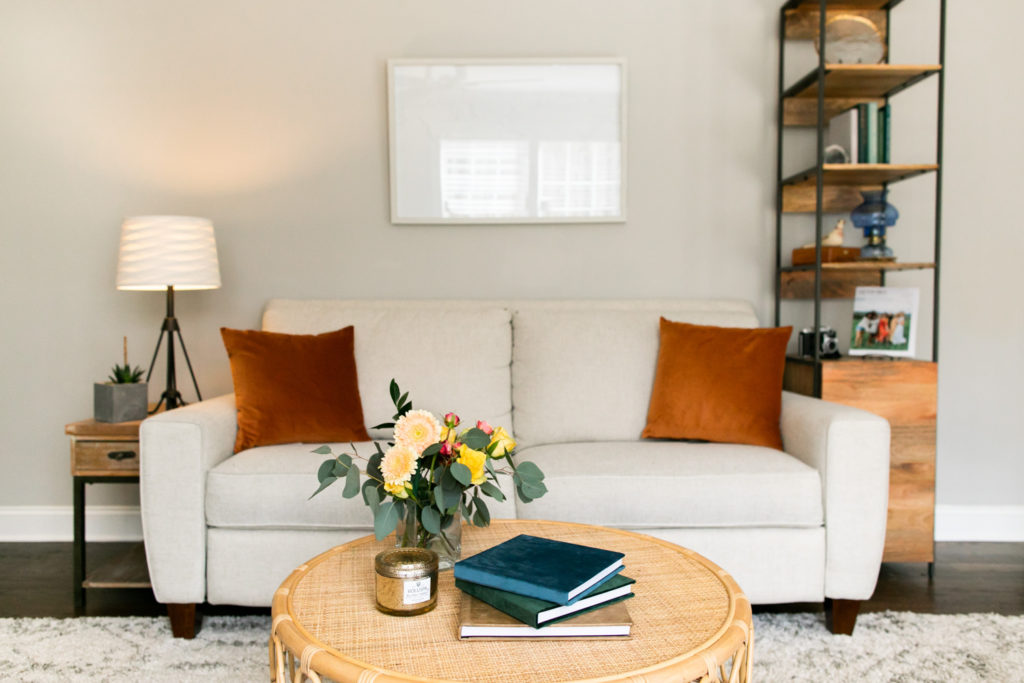Tips for Buying a House while Working for Yourself
February 14, 2020

My husband, Brandon, and I are both self-employed, and have been our entire almost-8-year marriage. When we decided we wanted to buy a house a few years in, we learned it’s not as straight forward as it is for the typical 9-5 employed. There are a few steps necessary to prepare your finances before you even consider checking out Zillow. Brandon and I tag-team this post to tell you about our experience, and our tips for buying a house while working for yourself.
When tax season comes around, for contractors, the temptation is to write off as much as possible. I know the thought…”she asked how business was going and we chatted about it for 10 minutes, I’m writing this dinner off!”. The urge is understandable–self-employment tax is 15.3% in the 2019 tax year. The additional penalty doesn’t bode well for those of us in the contractor lifestyle, BUT, when you are ready to start making plans to purchase a house, you need to take it on the chin for at least two years. What are we saying? Don’t write off every little thing you can, and pay more in taxes.
Why?
The only way you prove income are those pesky tax returns. You might be pulling in a decent salary, but if you are only proving a small amount on your tax returns, lenders will say “no thanks” to approving you for a loan to buy a house. You need to show a decent profit to ease the fears of lenders; however, as you know, showing a profit means you’ll be taxed on that profit handsomely. That sucks, we know, but it’s a necessary evil to get your house loan secured. Be sure you are chatting with your CPA about what that looks like for you.
Speaking of loans, it is IMPERATIVE you find someone well versed in working with self-employed people. The banks will be asking for far more financial history and info from you, and having a mortgage broker who’s prepared and experienced to hold your hand as you jump through all the hoops is a must. Ask around, word of mouth referrals are bomb! What can you expect to hand over?
The lenders will want to see at least 2 years of tax returns, personal and business bank statements, and tax payment receipts. They’ll ask about your retirement funds, current funds, and any future expected funds. Basically, to buy a house, you’ll stand in front of potential lenders in your financial birthday suit!

A few steps we suggest:
- Meet with a financial advisor to take a look at your finances and see 1) the reality of what you can afford, and 2) what steps you need to take to put a good spending plan in place to save up for a down payment and other expenses.
- Know it is a process, and start doing the prep work long before you are ready to look at houses. There is nothing like getting your hopes up and not being prepared to take action.
- Save, Save, Save. This is wise financial practice in general (especially for the self-employed whose income fluctuates). A LOT of expense goes into buying and owning a house from down payments to repairs to deductibles to unexpected expenses to furnishings, and things add up QUICK. Allowing yourself financial breathing room will make the process a lot less stressful, more fun, and more flexible.
- Know you DON’T have to put more than 5% down unless you are doing the full 20%. Putting 20% down alleviates you from paying PMI (private mortgage insurance), but in the long run, 20% of your house cost is a significant amount of money, and there isn’t a huge benefit to handing over that much cash. Even if you have the full 20% saved, consider putting down 5, and saving the cash for all those other expenses we listed above.
- Be realistic and wise. Don’t live above your means, and don’t purchase above it either. If you’re not prepared, don’t force it and get yourself strapped down into a bad investment.
Buying a house is a fun experience, but comes with a lot of stress. The more you prepare your finances, the more you set yourself up for success! Bring trusted individuals into the conversation. Seek advice from a financial advisor. Talk with home-owning industry friends. Properly pay your taxes, and save yo money!!
Be the first to comment